Affiliation: Faculty

Kevin Ahern Oral History Interview
Life history interview conducted by Mike Dicianna.
June 29, 2015
Kevin Ahern (b. 1954) is an OSU Professor of Biochemistry and Biophysics who is well-known
for his innovative approach to undergraduate instruction. For many years a Senior
Instructor, Ahern pioneered the use of unorthodox techniques - including limericks
and songs, which he calls "Metabolic Melodies" - to help students understand and retain
complex biochemical processes. Ahern was also on the forefront of the use of the internet
to enable scientific education, and has been posting notes and lecture recordings
online since 1995. The Director of Undergraduate Research at OSU, Ahern has also
co-authored multiple textbooks. Included among these are a collection that he wrote
with his wife, OSU Senior Instructor Indira Rajagopal, and made freely available online.
His interview focuses on his personal scientific evolution, his passion for teaching
and advising, and the innovations that he has applied to undergraduate instruction
at Oregon State.

Joe Beckman Oral History Interview
Life history interview conducted by Chris Petersen.
September 15, 2015
Joe Beckman (b. 1953), a Distinguished Professor of Biochemistry and Biophysics, has
been a Principal Investigator at the Linus Pauling Institute and a member of the OSU
faculty since 2001. A leader in the study of neurodegeneration, Beckman has spent
more than twenty years investigating the cause of, and searching for a cure for, amyotrophic
lateral sclerosis (ALS, or Lou Gehrig's Disease). Since 2002, Beckman has also served
as Director of OSU's Environmental Health Sciences Center, an organization that works
to foster and promote research on the impact of the environment on human health.
His interview focuses on his scientific education and military service; his breakthroughs
researching neurodegenerative disease; promising new studies that may result in an
effective treatment for ALS; and the institutional evolution of the Linus Pauling
Institute, the Environmental Health Sciences Center, and OSU itself.

Andy Blaustein Oral History Interview
Life history interview conducted by Chris Petersen.
February 3, 2017
Andy Blaustein (b. 1949) is a Distinguished Professor of Zoology who has worked at
OSU since 1978. A leading scholar of animal behavior and chemical ecology, Blaustein
has conducted especially important work on amphibian deformities and population declines,
and on host-pathogen biology. Formerly the director of OSU's graduate program in Environmental
Science, Blaustein is also a long-time editor of the journal Conservation Biology. In his interview, Blaustein traces his career in research and teaching, and shares
his institutional memories of four decades spent at Oregon State University.

John Bliss Oral History Interview
Life history interview conducted by Mike Dicianna.
August 21, 2015
John Bliss (b. 1951) was the first Starker Chair in Private and Family Forestry, occupying
this position within the OSU College of Forestry from its inception in 1998 to his
move into administration in 2012. A leading researcher on private forest policy and
forest-based rural development, Bliss has conducted influential work on the socioeconomic
impact of the forestry industry, paying particular attention to the roles played by
small woodland foresters. From 2012 to his retirement in 2016, Bliss served as Associate
Dean for Graduate and International Programs within the College of Forestry and, in
this capacity, contributed significantly to the increasing internationalization of
the college. His interview traces the progression of his academic career; his close
involvement with research and experiential learning opportunities both globally and
in Oregon's rural communities; and the advancement of the OSU College of Forestry
during his years of association.

Tammy Bray Oral History Interview
Life history interview conducted by Chris Petersen.
March 28, 2014
Tammy Bray (b. 1945) was the Executive Dean of OSU's Division of Health Sciences and
Dean of its College of Public Health and Human Sciences from 2002 to her retirement
in 2016. An accomplished researcher in the field of Nutrition, Bray arrived at OSU
in 2002 following stints as research professor and administrator at the University
of Guelph and the Ohio State University. As an OSU dean, Bray oversaw the expansion
and reorganization of what was formerly known as the College of Health and Human Sciences.
In 2014 the college achieved a major milestone when it became home to the first accredited
public health curriculum in the state of Oregon. Bray's interview focuses on her
upbringing in Taiwan, her academic career, and her efforts as a dean at Oregon State
University.

Margaret Burnett Oral History Interview
Life history interview conducted by Chris Petersen.
January 10, 2017
Margaret Burnett (b. 1949) is a Distinguished Professor of Computer Science who has
been a member of the OSU faculty since 1993. A co-founder of the discipline of end-user
software engineering, Burnett is perhaps most prominently known for her development
of the GenderMag protocol, which helps software engineers to evaluate the gender inclusivity
of the programs that they create. Burnett has also made important contributions to
multiple visual programming languages and to the theory of information foraging. The
evolution of her research and her experiences as a woman in the field of computer
science are the primary emphases of her interview.

The Extension Tradition in the Columbia River Gorge
Two life history interviews conducted by Chris Petersen.
August 9, 2016
The Extension and Experiment Station traditions in Oregon's Columbia River Gorge date
back well over one-hundred years to the founding of the Mid-Columbia Experiment Station
in 1913, and the first employment of agricultural agents in Wasco County in 1916 and
Sherman County in 1918. In August 2016, two interviews were conducted with individuals
closely associated with the more modern history of Extension and Experiment Station
efforts across the region. Billie Stevens (b. 1951) is a retired 4-H Extension agent
who served Hood River County from 1985 to 2009. Sandy Macnab (b. 1953) is an OSU alum
who has spent nearly his entire life in Sherman and Wasco Counties, playing a major
role in a wide variety of area Extension efforts since 1979.
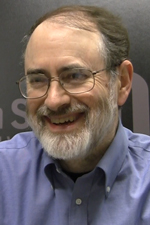
Tom Dietterich Oral History Interview
Life history interview conducted by Chris Petersen.
June 10, 2015
Tom Dietterich (b. 1954), a Distinguished Professor Emeritus of Electrical Engineering
and Computer Science, was a member of the OSU faculty from 1985 to his retirement
in 2016. A leading thinker in the field of machine learning, Dietterich has made numerous
contributions to the advancement of artificial intelligence, including multiple applications
of computing power to the solution of a variety of ecological problems. A co-founder
and past president of the Machine Learning Society, Dietterich has also been involved
with a number of several private sector ventures, including work as Chief Scientist
at Strands, Inc. and BigML. His interview focuses on his life-long fascination with
computers, his major contributions to machine learning, and the evolution of Computer
Science over three decades at OSU.

Natalie Dollar Oral History Interview
Life history interview conducted by Janice Dilg.
August 5, 2015
Natalie Dollar (b. 1963) has been a member of the OSU Speech Communications department
since 1993, and a member of the faculty at OSU-Cascades since 2002. Now the Associate
Dean of Arts and Sciences at the Bend campus, Dollar has focused her scholarly research
on cultures that choose to reside outside of the mainstream, a program of work that
has led to study of houseless youths in the Seattle area as well as fans of the Grateful
Dead music group. Her interview focuses on her southern roots and the impact that
her upbringing made on her as an academic and as a person; her research on alternative
cultures; and her long experience as a faculty member and administrator at the Cascades
branch campus.

Justin Fleming Oral History Interview
Life history interview conducted by Mike Dicianna.
December 15, 2015
Justin Fleming (b. 1980) is a 2007 graduate of OSU, majoring in Business and minoring
in Environmental Economics. While a student, Fleming was central to a number of activities
related to environmental sustainability on campus, including the creation of the Student
Sustainability Initiative in 2006. Following graduation, Fleming worked for OSU as
a Business Analyst before being hired as Manager of the Motor Pool in 2008. Since
then, Fleming has overseen the absorption of the University of Oregon Motor Pool into
a larger University Motor Pool that is managed at OSU. He was also responsible for
the first purchase of electric cars for inclusion in the Motor Pool fleet. His interview
touches upon his involvement in multiple sustainability initiatives as well as the
history, activities, work culture, and future of the University Motor Pool.

Balz Frei Oral History Interview
Life history interview conducted by Chris Petersen.
January 10, 2014
Balz Frei (b. 1958) served as Director of the Linus Pauling Institute at Oregon State
University from 1997 to 2016. A Distinguished Professor Emeritus of Biochemistry and
Biophysics, Frei's research has focused on the mechanisms causing chronic human disease,
in particular atherosclerosis and cardiovascular disease, and the role that micronutrients,
phytochemicals and dietary supplements might play in ameliorating these diseases.
His interview provides an overview of his life experiences and career path, beginning
with his formative years in Switzerland and continuing on to his academic appointments
in the United States. The interview's primary emphasis is Frei's tenure at OSU, with
particular attention paid to the growth of the Linus Pauling Institute under his leadership.

Karim Hamdy Oral History Interview
Life history interview conducted by Chris Petersen.
October 10, 2014
Karim Hamdy (b. 1952), a native of Tunisia, has been associated with OSU since 1981,
first as a doctoral candidate in Civil Engineering, and later as an instructor of
both French and Arabic. A student activist who helped to form multiple groups representing
and supporting North African students at OSU, Hamdy later co-founded the university's
Tunisia Study Abroad program. He has also taught Arabic classes at Oregon State since
their first formation in 2002. His interview focuses on his upbringing in Tunisia,
his experiences studying and working at OSU, and the evolution of the university's
Arabic language courses and the Tunisia Study Abroad program.
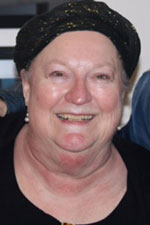
Charlotte Headrick Oral History Interview
Life history interview conducted by Mike Dicianna.
April 7, 2015
Charlotte Headrick (b. 1948) is a professor of Theater Arts who, in 1982, became the
first woman hired to the drama faculty at OSU since the 1930s. A scholar of the Irish
theater and female playwrights, Headrick has directed in the vicinity of one-hundred
theater pieces and readings during her tenure at Oregon State. An award-winning teacher,
Headrick has also served as guest director at a variety of other colleges and universities,
and has traveled to Turkey and Ireland to stage plays and research dramatic history.
Her interview focuses on her deep family roots and upbringing in the American South,
her institutional memories of the theater program at OSU, and her academic interests
in Irish drama.

Jack Higginbotham Oral History Interview
Life history interview conducted by Chris Petersen.
November 3, 2015
Jack Higginbotham (b. 1958) has been a member of OSU's Nuclear Engineering faculty
since arriving in Corvallis in 1987, and has led the Oregon Space Grant program since
2002. During his years at Oregon State, Higginbotham has also served as Senior Reactor
Operator and Senior Health Physicist at the OSU Radiation Center; chair of the Radiation
Health Physics program; Associate Dean of the Graduate School; and President of the
Faculty Senate. In a wide-ranging interview, Higginbotham discusses his education
and academic work in nuclear science and engineering; his institutional memories of
Nuclear Engineering and Radiation Science at OSU; and the activities of Oregon Space
Grant during his years of association.

Bob and Kaety Jacobson Oral History Interview
Life history interview conducted by Mike Dicianna.
January 20, 2015
Bob Jacobson (b. 1939) attended Oregon State as an undergraduate and member of the
Beaver basketball team, graduating with a degree in Business and Technology in 1963.
Three years later, he became the country's first Marine Extension Agent, working with
coastal fishermen and seafood processors, as well as state-wide policymakers, for
nearly three decades. His daughter Kaety Jacobson (b. 1981) is a 2003 OSU graduate
in Natural Resources. In 2005, she too began a career as a Marine Extension Agent,
operating out of her hometown of Newport. In their interview, the Jacobsons reflect
on their closely connected experiences as OSU students and Marine Extension Agents
on Oregon's coast, commenting on the similarities and differences that each has observed
over the decades.

Becky Johnson Oral History Interview
Life history interview conducted by Janice Dilg.
August 3, 2015
Becky Johnson (b. 1955), Vice President for OSU-Cascades, has led OSU's branch campus
in central Oregon since 2008. Prior to her shift into administration, Johnson was
a natural resources economist in the OSU College of Forestry, whose research and teaching
focused on the economic values and impacts of non-market resources. Johnson has been
a member of the Oregon State faculty since first arriving in Corvallis in 1984 and
her administrative appointments have included several years as Vice Provost for Academic
Affairs and International Programs. Her interview provides insight into curricular
and demographic shifts that she has observed within the College of Forestry; changes
in the leadership roles that women have assumed at OSU in recent decades; the history
and growth of OSU-Cascades; and Johnson's sense of challenges and opportunities that
are specific to OSU-Cascades and its mission.
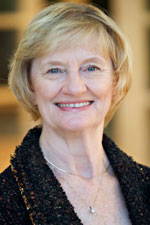
Ilene Kleinsorge Oral History Interview
Life history interview conducted by Chris Petersen.
February 10, 2015
Ilene Kleinsorge (b. 1949) was a member of the OSU College of Business faculty from
her arrival in 1987 to her retirement in 2015. For the final twelve years of her career,
Kleinsorge served as the college's Dean, a time period that saw significant change
within Business. As Dean, Kleinsorge oversaw broad changes to the college's curriculum
as well as the implementation of several new programs, a strengthened emphasis on
innovation, and the construction of a state-of-the-art facility, Austin Hall. Her
interview focuses on her atypical career path - which included stints as a factory
worker and licensed practical nurse - as well as the strategic planning process that
was central to the renewal of the College of Business. She also discusses her interactions
with Ken and Joan Austin, and recounts the story behind Austin Hall.

Paul Kopperman Oral History Interview
Life history interview conducted by Mike Dicianna.
September 2, 2014
Paul Kopperman (b. 1945) has taught history at OSU since his arrival in 1978. Specializing
in 18th century British military and medical history, Kopperman has also served as
advisor to both the OSU History Club and the OSU Religious Studies Club. An active
member of the local Jewish community, Kopperman has been closely associated with Holocaust
Remembrance Week at OSU from the time of its initial organization in 1986. Kopperman
has directed Remembrance Week activities since 1993 and, in this capacity, has been
responsible for bringing to campus several prominent scholars of genocide as well
as some two dozen Holocaust survivors. His interview focuses on his academic career,
growth and change in the regional Jewish community, and the history of Holocaust Remembrance
Week at Oregon State University.
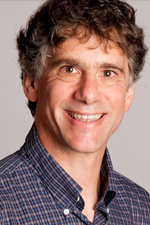
Milo Koretsky Oral History Interview
Life history interview conducted by Chris Petersen.
November 13, 2015
Milo Koretsky (b. 1962) has been a member of the Chemical Engineering faculty at Oregon
State since his arrival in Corvallis in 1992. Koretsky is recognized internationally
as a pioneering scholar of engineering education whose textbook, Engineering and Chemical Thermodynamics, has been widely praised for its conceptual approach to the teaching of thermodynamics.
At OSU, Koretsky has also been instrumental in the development of virtual learning
modules that provide student engineers with practical experience that closely simulates
the environment that they will encounter in the workplace. Koretsky has likewise been
closely associated with OSU's MECOP internship program for the entirety of his career,
and has been instrumental in its growth over the decades. His interview focuses on
his personal development as an engineer and educator; his institutional memories of
Chemical Engineering and MECOP at OSU; and his continuing efforts to rethink and improve
engineering education.

Denise Lach Oral History Interview
Life history interview conducted by Chris Petersen.
July 21, 2015
Denise Lach (b. 1955) is a social scientist who has lead multiple research institutes
at OSU, including the Center for the Analysis of Environmental Change, and the Center
for Water and Environmental Stability. A member of the Oregon State faculty since
1996, Lach was named director of the College of Liberal Arts' School of Public Policy
when it was created in 2010, and she continues to serve in that capacity today. Lach's
interview focuses upon her path through academia, her development as a social scientist,
her research on the social and policy dimensions of various natural resources issues,
and her perspective on change and advancement within OSU's College of Liberal Arts.

Jon Lewis Oral History Interview
Life history interview conducted by Chris Petersen.
May 4, 2017
Jon Lewis (b. 1955) is a Distinguished Professor of Film Studies who has been a member
of the OSU English faculty since arriving in 1984. The first professor in university
history to be dedicated full-time to Film Studies, Lewis created much of the curriculum
used in OSU's film classes today. He is also a prolific author who has written well-received
books on different shifts in Hollywood film culture, and is a scholar of the life
and work of director Francis Ford Coppola. His 2010 book on The Godfather has been translated into French, Turkish and Mandarin. In his interview, Lewis reflects
on his discovery and love of film; his work in creating a Film Studies program at
OSU; and the different books that he has authored over the course of his career.

An Oral History of the Linus Pauling Institute
Six interviews with Steve Lawson, conducted by Chris Petersen.
August - December 2011
The Linus Pauling Institute was founded in 1973 by Linus Pauling and two colleagues,
and was originally located near the campus of Stanford University. Primarily devoted
to exploring Pauling's controversial ideas on the health benefits of large doses of
vitamin C, the Institute gradually developed a broad and eclectic research agenda
that included work on superconductivity, molecular evolution, and metabolic profiling.
Consistently hamstrung by financial woes and further embattled by personnel disputes
that resulted in legal actions, the Institute was on the brink of closure by the time
of Pauling's death in 1994. Buoyed by a handful of timely donations and the administrative
acumen of Pauling's eldest son, Linus Pauling Jr., the Institute managed to stay afloat
and, in 1996, relocated to Oregon State University. Today the Linus Pauling Institute
is a thriving research enterprise that makes regular contributions to the fights against
cancer and cardiovascular disease, and to the promotion of healthy aging. Over the
course of six interviews, Steve Lawson, an Administrative Officer at LPI who has worked
for the Institute since 1977, relays his memories of the Institute's colorful history
and shares his impressions of Linus Pauling, whom Lawson knew as a colleague and as
a friend for nearly two decades.
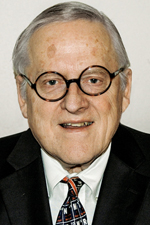
Walter Loveland Oral History Interview
Life history interview conducted by Chris Petersen and Linda Richards.
July 22, 2015
Walter Loveland (b. 1939) is a nuclear chemist who has been a member of the OSU faculty
since 1968. A decorated scholar who has made important contributions to the study
of super-heavy elements, Loveland enjoyed a twenty-three year collaboration with Glenn
Seaborg (1912-1999), a Nobel laureate and fellow nuclear chemist who was based at
the University of California, Berkeley. The organizer of a 2012 symposium to celebrate
the centenary of Seaborg's birth, Loveland was honored by the American Chemical Society
with the 2014 Glenn T. Seaborg Award for Nuclear Chemistry, an acknowledgement of
his key contributions to the understanding of super-heavy elements and heavy-element
synthesis. In a wide-ranging interview, Loveland shares his institutional memories
of nuclear chemistry and radiation science at OSU; recalls his work and friendship
with Glenn Seaborg; and provides his perspective on cultural and academic change at
Oregon State.

Jane Lubchenco Oral History Interviews
Two life history interviews conducted by Janice Dilg.
October 2014 - April 2015
Jane Lubchenco (b. 1947), Distinguished Professor of Zoology, is among the most accomplished
scientists to have ever served as a member of the OSU faculty. Professors in the
Zoology Department since 1977, Lubchenco and her husband, Bruce Menge, have contributed
greatly to the scientific understanding of marine ecosystems around the world. Since
the late 1980s, Lubchenco has also been actively involved in the formation of science
policy, especially as it relates to the nation's coastlines and oceanic environments.
In 2009 Lubchenco was confirmed as the first female head of the National Oceanic and
Atmospheric Administration, a post that she held until 2013. Her interviews discuss
the arc of her education, her career path, highlights of her research program, her
increasing interest in public policy, and her tenure as leader of NOAA.

Melinda Manore Oral History Interview
Life history interview conducted by Chris Petersen.
November 30, 2015
Melinda Manore (b. 1951) received her Ph.D. in Nutrition from Oregon State University
in 1984. In 2001, Manore returned to OSU, joining the faculty as chair of what was
then the Department of Nutrition and Food Service Management. A pioneering scholar
of the intersections between nutrition and exercise, Manore has published widely on
topics including rural obesity in children, nutrition and exercise for women, and
healthy eating for athletes. Her interview traces the arc of her academic career with
a particular focus on her achievements in research. Included as a secondary topic
are Manore's institutional memories of the transformation of the College of Home Economics
into what is now the College of Public Health and Human Sciences.

Bruce Mate Oral History Interview
Life history interview conducted by Mike Dicianna.
September 8, 2016
Bruce Mate (b. 1946) has been associated with OSU for more than four decades, first
as a post-doctoral fellow in Oceanography, then as a Marine Extension Agent, and ultimately
as a faculty member and administrator. Mate is internationally recognized as the chief
pioneer of radio and satellite tracking of marine mammals; specifically, of whale
populations. Beginning in 1979, Mate and his research group have used increasingly
sophisticated tagging and tracking devices to better understand the migratory, feeding
and reproductive habits of a wide range of whale species across multiple habitats.
Mate and his colleagues have tagged over eight-hundred whales in all of the world's
oceans, traveling to fifty-five countries in the process. The founder and director
of the OSU Marine Mammal Institute, Mate's scientific contributions have led to numerous
policy initiatives that have helped to rehabilitate whale populations that were once
bordering on extinction. His interview largely recounts the specifics of his groundbreaking
research, while also touching upon the history of the Marine Mammal Institute as well
as his personal memories of working in Extension.

Brenda McComb Oral History Interview
Life history interview conducted by Chris Petersen and Kalia Flocker.
February 24, 2015
Brenda McComb was born William McComb in 1952. Over two stints at OSU, McComb worked
as a member of the faculty in the Department of Forest Sciences and Department of
Fisheries and Wildlife, as Dean of the Graduate School, as Vice Provost for Academic
Affairs, and as a member of the OSU Board of Trustees. In addition, McComb has been
central to the development of a support network for transgender individuals both on
campus and throughout the mid-Willamette Valley. Her interview focuses largely on
the story of her own gender journey, including discussion of the personal and professional
impacts of her gender transition from male to female. The session also touches upon
her work in academia as a faculty member, an administrator and an advocate.
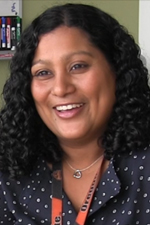
Jessina McGregor Oral History Interview
Life history interview conducted by Chris Petersen.
September 4, 2016
Jessina McGregor (b. 1978) is an OSU alumna who graduated in 2001 with honors bachelors
degrees in Microbiology and International Studies. Following her doctoral training
in Epidemiology, McGregor returned to her alma mater in 2006, joining the faculty
of OSU's College of Pharmacy. McGregor was hired as part of an initiative to boost
the research program within the college's Portland branch, and she has been based
at either the OHSU main campus or at the health sciences complex on the South Waterfront
for the whole of her career as an OSU faculty member. Her interview details her undergraduate
years at Oregon State; her research on antibiotic resistance and optimized patient
care; and her perspective on the forward advancement of OSU Pharmacy's aims in Portland,
including the impact that has been made by the construction of the Collaborative Life
Sciences Building.

Janet Nishihara Oral History Interview
Life history interview conducted by Chris Petersen.
September 2, 2015
Janet Nishihara (b. 1956) first came into contact with OSU as an undergraduate, majoring
in English Education and completing her degree in 1978. She returned to Oregon State
in 1980 as a master's degree student in the College Student Services Administration
program, a time period during which she also became involved with the Educational
Opportunities Program (EOP) at OSU. For more than three decades following, Nishihara
has played a central role in a wide variety of student support and diversity development
initiatives on campus. In 2009, after many years on staff, Nishihara was promoted
to director of EOP, the mission of which is to provide support for the personal and
academic development of traditionally underrepresented students at OSU. In her interview,
Nishihara reflects on her upbringing as a third generation Japanese-American raised
in rural eastern Oregon; discusses her multifaceted experiences as a student and faculty
member at OSU; and shares her perspective on diversity advancement at the university
from the mid-1970s to present day.

David Noakes Oral History Interview
Life history interview conducted by Chris Petersen.
June 4, 2015
David Noakes (b. 1947) is a professor of Fisheries and Wildlife at OSU as well as
director and senior scientist at the Oregon Hatchery Research Center (OHRC). Noakes
came to Oregon State in 2005 after a long and distinguished career at the University
of Guelph in Ontario, Canada, where he developed an international reputation as a
scholar of fish behavior, evolution and genetics. Under Noakes' leadership, the OHRC
engages with researchers from around the world as well as local groups in exploring
the relationship between hatchery raised fish, wild fish, and the environment. Noakes'
interview focuses on his upbringing and education in Canada, his academic work in
fish behavior, and the on-going work of the OHRC.

José-Antonio Orosco Oral History Interview
Life history interview conducted by Janice Dilg.
June 25, 2015
José-Antonio Orosco (b. 1971) is a Philosophy professor at OSU and the director of
the university's Peace Studies program. A former union organizer and student activist,
Orosco is presently the faculty advisor for the Centro Cultural César Chávez as well
as the OSU chapter of Movimiento Estudantil Chicano/Chicana de Aztlan. The author
of the 2008 book, Cesar Chavez and the Common Sense of Nonviolence, Orosco is also a founding member of OSU Faculty and Staff for Peace and Justice,
a co-founder of the Anarres Project for Alternative Futures, and president of the
OSU chapter of the American Association of University Professors. His interview focuses
on the path that he has taken as an academic and activist, his involvement with student
organizations and multicultural programming, and his perspectives on the teaching
and practice of engaged philosophy.

Ed Ray Oral History Interviews
Four life history interviews conducted by Chris Petersen.
June - August 2015
Ed Ray (b. 1944), the fourteenth President of Oregon State University, has overseen
both historic growth on campus and a major recalibration of university ambitions.
Trained as an economist, Ray spent thirty-three years at Ohio State University, where
he served as chair of the Economics department before moving into central administration,
first as Chief Information Officer and later as Provost. Ray came to OSU in 2003
and set in motion a strategic planning process that realigned university structures
and goals. He also launched OSU's first comprehensive capital campaign, The Campaign
for OSU, which raised $1.142 billion and resulted in a busy period of campus construction
as well as the endowment of seventy-nine faculty positions and the creation of over
600 scholarship and fellowship funds. Over four interviews, Ray reflects on his upbringing
and education; discusses his roots as a scholar and an administrator; and shares his
perspective on a wide array of initiatives that have moved forward during his tenure
as OSU President.

David Robinson Oral History Interview
Life history interview conducted by Janice Dilg.
September 30, 2015
David Robinson (b. 1947) was a member of the OSU English faculty from 1976 to his
retirement in 2016, and held the Oregon Professorship in English - the OSU College
of Liberal Arts' first endowed chair - from its inception in 1991. Recognized internationally
as an authority on American Transcendentalist authors, Robinson has written numerous
books on Ralph Waldo Emerson and Henry David Thoreau, among other nineteenth century
American writers and philosophers. For fifteen years Robinson also directed the OSU
Center for the Humanities, an institute dedicated to improving the vitality and quality
of humanities teaching and research at Oregon State. His interview focuses on his
personal scholarly evolution; his memories of significant change within the OSU English
department; and his perspective on the broader advancement of the humanities over
a forty year career at OSU.
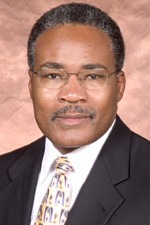
Larry Roper Oral History Interview
Life history interview conducted by Janice Dilg.
November 7, 2014
Larry Roper (b. 1953) served as Vice Provost for Student Affairs from 1995 to his
retirement from upper administration in 2014. During his years as Vice Provost, Roper
proved instrumental to a number of university initiatives, including the OSU "Campus
Compact," the development of the first-year experience program, and a university-wide
assessment effort. Roper, who is one of the first African American upper administrators
in Oregon State history, has also been central to a variety of diversity actions both
on campus and in the community. A faculty member in the OSU Ethnic Studies department,
Roper now directs both the College Student Services Administration program as well
as the undergraduate minor in Social Justice. His interview traces his progression
as a leader within academia; documents his activities and contacts at Oregon State;
and reflects on both the continuing issues and the gradual progress of diversity enhancement
at OSU.

Darlene Russ-Eft Oral History Interview
Life history interview conducted by Chris Petersen.
June 23, 2016
Darlene Russ-Eft (b. 1947) is a faculty member in OSU's College of Education who arrived
at the university in 2001 after spending seventeen years in the private sector. Known
today as a founder of the field of Human Resources Development, Russ-Eft has written
widely on program evaluation and the transfer of training. In 2008, Russ-Eft became
chair of the Adult Education and Higher Education Leadership discipline within the
College of Education and, for many years, she has been actively involved in OSU's
highly regarded doctoral program in Community College Leadership. In her interview,
Russ-Eft shares a series of recollections dating to her years in the private sector,
and provides her institutional memories of the evolution and growth of the College
of Education since the turn of the century.

Patti Sakurai Oral History Interview
Life history interview conducted by Chris Petersen.
March 2, 2015
Patti Sakurai (b. 1966) has been a faculty member in OSU's Ethnic Studies department
since its founding in 1996. A scholar whose interests range from Japanese American
citizenship to Korean television dramas, Sakurai has also created nineteen different
courses in Ethnic Studies and Women's Studies during her tenure at Oregon State.
Sakurai has likewise branched out into the world of multimedia, producing documentary
shorts on a variety of subjects and serving as a charter member of the production
collective behind APA Compass, an Asian and Pacific American public affairs show broadcast on KBOO community radio.
Her interview focuses on her scholarly evolution from English to Ethnic Studies, the
history and ambitions of OSU's Ethnic Studies department, and the issues faced by
communities of color at OSU today.

Henry Sayre Oral History Interview
Life history interview conducted by Janice Dilg.
August 5, 2014
Henry Sayre (b. 1948) is a Distinguished Professor of Art History who has worked at
OSU since 1981 and at the OSU-Cascades campus since its opening in 2001. Sayre is
also an accomplished teacher and the author of a number of books, including a groundbreaking
art appreciation textbook, A World of Art, now in its seventh edition, and the children's book From Cave Paintings to Picasso, winner of an Oregon Book Award. As chair of the curriculum committee and as academic
provost, Sayre has also been instrumental in the on-going development of the Cascades
campus in Bend, Oregon. His interview focuses on his experiences as a professor in
the liberal arts at OSU, his leading role at OSU-Cascades, and his influential work
as an art historian and art educator.
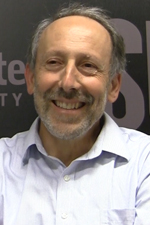
John Selker Oral History Interview
Life history interview conducted by Chris Petersen.
August 25, 2015
John Selker (b. 1960) is a Distinguished Professor of Biological and Ecological Engineering
whose research has specialized in water resources engineering with a particular focus
on developing low-cost technical solutions to agricultural and environmental challenges
faced by the developing world. A veteran traveler who spent his initial years after
college leading cook stove programs in Africa and Asia, Selker is also a driving force
behind the Trans-African Hydro and Meteorological Observatory project, an initiative
that is using a collection of small weather stations to provide more accurate meteorological
information to the continent's agriculturalists. Selker's interview focuses on his
formative experiences traveling and working in Africa; his institutional memories
of agricultural engineering at OSU; and his continuing efforts to improve quality
of life for some of the planet's most vulnerable populations.
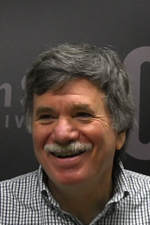
Lew Semprini Oral History Interview
Life history interview conducted by Chris Petersen.
February 22, 2017
Lew Semprini (b. 1952) is a Distinguished Professor of Environmental Engineering who
has been a member of the Oregon State faculty since 1993. An expert on in situ bioremediation of contaminated environments, Semprini has uncovered a wide array
of mechanisms for treating hazardous substances that have polluted industrial, military
and residential locations alike. One project in particular, which used samples of
Willamette River water collected in Corvallis, led to the discovery of microorganisms
that could metabolize chlorinated solvents. In his interview, Semprini details the
evolution of his career as a scientist and engineer, with particular attention paid
to the development of the Environmental Engineering program at OSU.

Dick Smiley Oral History Interview
Life history interview conducted by Chris Petersen.
November 21, 2014
Dick Smiley (b. 1943) was a Professor of Plant Pathology at the Columbia Basin Agricultural
Research Center (CBARC) for nearly thirty years, and served as director of the branch
from 1985 to 2000. CBARC is located just outside of Pendleton, Oregon, and the research
and extension work conducted there serves eastern Oregon's farmers and ranchers, and
focuses primarily on agricultural concerns related to wheat and other dry land crops.
Smiley created the region's first plant pathology research program when he arrived
at the station in 1985, and later conducted important work on the impact of nematodes
on area crops. His interview focuses on his scientific research in soils and plant
pathology, and his institutional memories of life, work and community engagement in
Oregon's wheat country.

Steve Strauss Oral History Interview
Life history interview conducted by Chris Petersen.
March 7, 2017
Steve Strauss (b. 1955) is a Distinguished Professor of Forest Biotechnology who has
been a member of the Forestry faculty at OSU since 1985. Over the course of his career,
Strauss has conducted groundbreaking research on tree genetics, using poplars as his
primary model organism. Much of this work has incorporated techniques of genetic engineering,
an issue that has become increasingly contentious over the course of Strauss' years
in academia. In his interview, Strauss traces the arc of his research and comments
on the many ways in which changes in the conventional wisdom have compelled him to
adapt or reorient his scholarly work. Strauss likewise provides valuable insight into
the evolution of the College of Forestry during the years of his association.

Bernadine Strik Oral History Interview
Life history interview conducted by Mike Dicianna.
August 21, 2015
Bernadine Strik (b. 1962) is an OSU Professor of Horticulture who has been a member
of the Oregon State faculty since arriving in 1987. In addition to her Extension,
research and teaching appointment within the Department of Horticulture, Strik is
the Berry Crops Research Leader at the North Willamette Research and Extension Center
in Aurora, Oregon. Recognized internationally as an expert on numerous berry crops,
Strik's research and Extension programs have directly impacted crop yields and diversification
in the Pacific Northwest through her work on plant physiology and nutrition, as well
as crop production and harvesting systems. Her interview traces her broad and active
program of research while at OSU, and her deep connection to furthering the Land Grant
mission in Oregon.

Mas Subramanian Oral History Interview
Life history interview conducted by Chris Petersen.
September 30, 2015
Mas Subramanian (b. 1953) joined the OSU Chemistry faculty in 2006, following a prolific
twenty-two year research career at DuPont, a time period during which he published
more than 200 papers and secured some 50 patents. A leader in the field of solid state
chemistry, and a heavily cited expert on a class of minerals called pyrochlores, Subramanian
is perhaps best known for his laboratory's discovery of a new form of blue pigment.
First synthesized accidentally in 2009, this new type of colorant possesses highly
advantageous environmental properties and can also be structurally manipulated to
create nearly every color in the spectrum. Subramanian's interview traces his upbringing
and education in India; his work habits and hugely productive tenure at DuPont; his
institutional memories of Chemistry at OSU; the import of his serendipitous pigment
discovery and his thoughts on the role that chance has often played in the history
of scientific advancement.
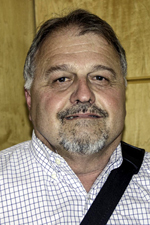
John Talbott Oral History Interview
Life history interview conducted by Mike Dicianna.
June 29, 2015
John Talbott (b. 1955) has been the director of the Sun Grant Western Regional Center
at OSU since arriving on campus in 2011. Under his leadership, Sun Grant has facilitated
important scientific research on biofuels, life cycle analysis, and bioproduct conversion
processes, all projects that seek to improve environmental sustainability while also
contributing to a more diversified agricultural and industrial economy. Since 2013,
Talbott has also served as Assistant Director of the Oregon Agricultural Experiment
Station, managing the grant processes, work plans, and research emphases for Experiment
Station faculty across the state. His interview provides an overview of his career
in carbon sequestration and environmental sustainability, and details the mission
and activities of Sun Grant at OSU from its inception up to present day.

Robert Tanguay Oral History Interview
Life history interview conducted by Chris Petersen.
April 21, 2017
Robert Tanguay (b. 1966) is a Distinguished Professor of Molecular Toxicology who
joined the OSU faculty in 2003. The Director of the Sinnhuber Aquatic Research Laboratory,
Tanguay has built an international reputation for his use of zebrafish as a model
for analyzing the toxicological impact of thousands of different chemical compounds.
In 2009, his laboratory received a major grant from the Environmental Protection Agency
that was used to conduct the largest in vivo toxicological study to date - an examination
of some 1,200 compounds yielding data on half a million zebrafish. Tanguay also speaks
regularly to both public and private entities on the biosafety of various commercial
developments, including flame retardants and the practice of fracking. His interview
traces his career in science with particular attention paid to his zebrafish studies
at OSU.

Lisa Templeton Oral History Interview
Life history interview conducted by Chris Petersen.
August 6, 2015
Lisa Templeton (b. 1967) has been instrumental to online learning at OSU since its
first programmatic inception in 2002, and has served as director of the university's
Extended Campus since 2008. Under Templeton's leadership, OSU Ecampus has emerged
as a national leader in online education to the point where, in 2015, it was ranked
fifth out of three-hundred online bachelor's degree programs, delivering nineteen
undergraduate majors and twenty-two graduate programs to over 4,500 students. Templeton's
interview focuses on the institutional history of distance education at OSU during
the internet age, the inner-workings of OSU Ecampus today, and the environment navigated
by faculty who are teaching and students who are learning online.

Maret Traber Oral History Interview
Life history interview conducted by Chris Petersen.
June 23, 2014
Maret Traber (b. 1950) is the Director of the Oxidative/Nitrative Stress Core Laboratory
at Oregon State University's Linus Pauling Institute. Traber joined the Institute
as a principal investigator in 1998 after twenty-two years spent working in support
of others' research efforts. The author of over 180 peer-reviewed papers, Traber is
now internationally recognized as a leading authority on Vitamin E, and has helped
to establish the recommended daily allowance for the vitamin. Her interview focuses
on her long journey to institutional stability, the research that she has conducted
in nutrition and biochemistry, and her reflections on change and growth at the Linus
Pauling Institute.

Janet Webster Oral History Interview
Life history interview conducted by Chris Petersen.
November 14, 2014
Janet Webster (b. 1953) served as the head of the Guin Library at Hatfield Marine
Science Center from 1989 to her retirement in 2015. Active in regional and international
professional organizations alike, Webster received numerous awards over the course
of her career including, in 2003, Librarian of the Year from the Oregon Library Association.
While at Guin, Webster oversaw library activities during a period of major technological
change, and was instrumental in building an infrastructure suitable for serving Guin's
very diverse user base on the Oregon coast. For several years, Webster also administered
the work of OSU's other branch libraries, including the OSU-Cascades library in Bend.
Her interview focuses on her upbringing, educational experiences and ultimate decision
to pursue a career in libraries; her work and contacts at HMSC; and the changes that
she has witnessed in coastal community life and within the library profession.

Tony Wilcox Oral History Interview
Life history interview conducted by Chris Petersen.
June 23, 2015
Tony Wilcox (b. 1951) was a member of the faculty of the College of Public Health
and Human Sciences from his arrival at OSU in 1987 to his retirement in 2015. Primarily
interested in exercise physiology as a researcher, Wilcox also served as chair of
the Department of Exercise and Sports Science from 1994 to 2011, and as co-director
of the School of Biological and Population Health Sciences from 2011 to 2015. Wilcox
likewise spent more than a dozen years as an OSU Faculty Senator and was President
of the Faculty Senate in 1997. His interview focuses on his work as a researcher and
administrator in exercise science, his life-long passion for running, and his many
contributions to the Faculty Senate and to a wide swath of university committees.

Dawn Wright Oral History Interview
Life history interview conducted by Chris Petersen.
June 10, 2016
Dawn Wright (b. 1961) was an active member of the Geosciences faculty at OSU from
1995 to 2011. Now a Courtesy Professor at Oregon State, Wright is the Chief Scientist
at Esri, a Geographic Information Systems software firm with headquarters in southern
California. Nicknamed "Deep Sea Dawn," Wright is internationally recognized for her
use of GIS technologies to map both the geology and the geography of the ocean floor.
A veteran of dozens of ocean cruises, Wright has also participated in multiple ALVIN
submersible dives to explore the depths of the ocean. She is the recipient of numerous
awards including, in 2007, the Carnegie Foundation's U.S. Professor of the Year Award
for the state of Oregon. Her interview details the roots of her love for the ocean
and for science; her progression through academia; and her memories of an accomplished
career at OSU.

Harry Yeh Oral History Interview
Life history interview conducted by Chris Petersen.
September 22, 2014
Harry Yeh (b. 1950) is a professor of Civil Engineering at OSU and an international
authority on tsunamis. Since 1992, Yeh has traveled around the world to conduct field
surveys of areas impacted by massive tsunami waves. In 2011 and 2012, Yeh made two
extended trips to his native Japan to conduct research on the effects of the devastating
Tohoku tsunami, trips which included visits to the restricted zone surrounding the
Fukushima Daiichi Nuclear Power Plant. His interview focuses on his education in
multiple disciplines including hydrodynamics, his field work analyzing tsunamis in
Asia, South America and elsewhere, and the wave modeling research that he conducts
at OSU's O.H. Hinsdale Wave Research Laboratory.
